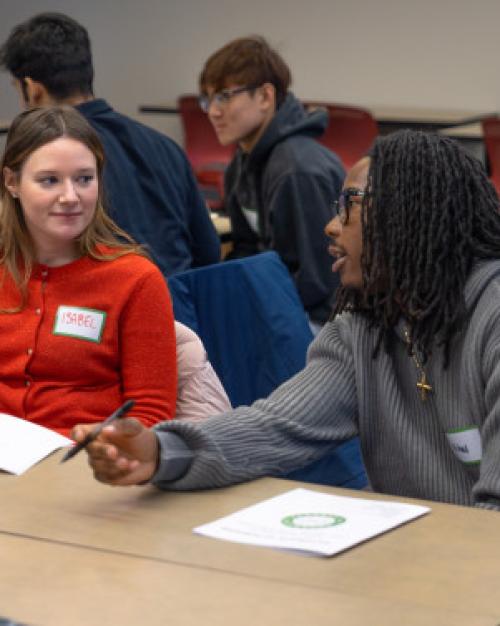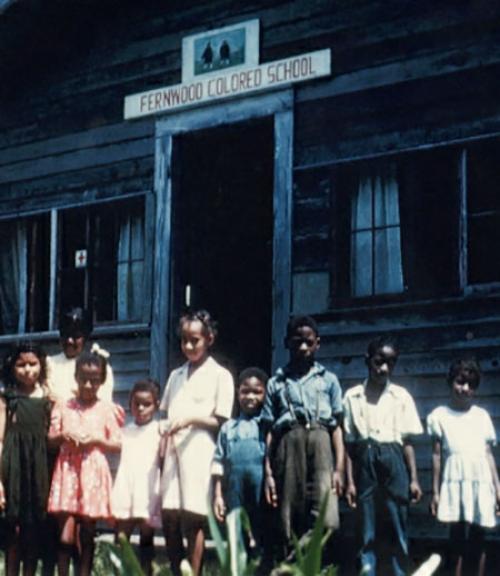“Segregated Education,” a new episode of the “What Makes Us Human?” podcast series, explains the history of educational inequities in the U.S. The podcast’s fifth season – “What Do We Know about Inequality?” – showcases the newest thinking across academic disciplines about inequality.
“Our education system owes everything to the Civil War-era freedoms gained by African Americans,” says Noliwe Rooks, professor of Africana studies and director of American studies in the College of Arts and Sciences, in her podcast. “The inequalities institutionalized during that period remain with us today.”
An interdisciplinary scholar, Rooks works on the cultural and racial implications of beauty, fashion and adornment; race, capitalism and education; as well as Black women and material culture. The author of four books, her most recent is “Cutting School: Privatization, Segregation, and the End of Public Education,” which won an award for non-fiction from the Hurston/Wright Foundation. Her current research project explores relationships between capitalism, land, urban food politics and cannabis legalization in the United States.
The “What Makes Us Human?” podcast is produced by the College of Arts and Sciences in collaboration with the Cornell Broadcast Studios and features audio essays written and recorded by Cornell faculty. New episodes are released each Thursday through the Fall semester, airing on WHCU and WVBR.
The episodes are also available for download on iTunes and SoundCloud and for streaming on the A&S humanities page, where text versions of the essays are also posted.
Image: Emanuel C. Hertzler Papers, 1943-1998, Mennonite Church USA Archives




